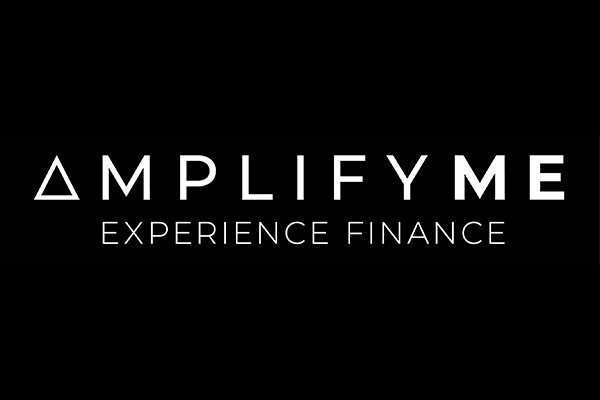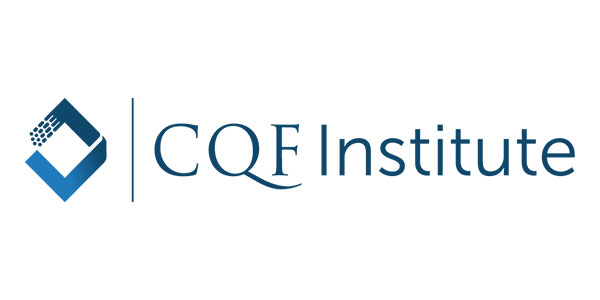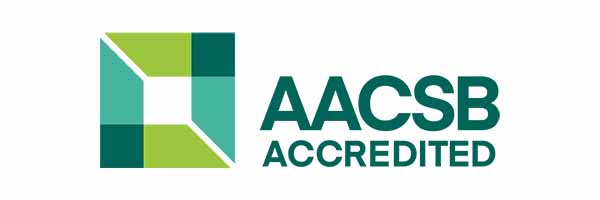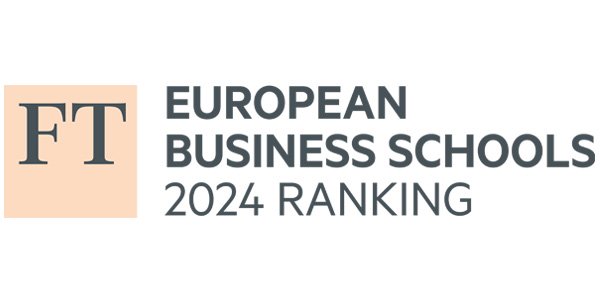MSc Finance (January)
ApplyKey facts
- Start date: January
- Study mode and duration: 12 months full-time
Affiliations: CFA Institute University Recognition Program
Triple-accredited business school (AACSB, EQUIS & AMBA)
Study with us
Launched in 1973, the MSc Finance at Strathclyde Business School is one of the UK’s pioneers of finance Masters programmes.
Since then, finance has transformed faster than any other business function — global capital markets, technology, and competition have reshaped the landscape. This programme answers that evolution: blending both international and practical scope. With a curriculum that balances theory with real-world skills, the MSc Finance offers a dynamic launch pad for a career anywhere in global finance.
Through the programme you'll:
- be in demand by employers due to skills in AI, analytics, problem-solving and contemporary business knowledge
- gain ‘useful learning’ from Strathclyde’s strong relationships with government, business, industry, and third sectors
- become a reflective and lifelong learner who values collaboration and is bold, ambitious, and innovative
- be part of an entrepreneurial campus, empowering you to drive innovation and transformational change
The Place of Useful Learning
UK University of the Year
Daily Mail University of the Year Awards 2026
Scottish University of the Year
The Sunday Times' Good University Guide 2026
Why this course?
If you plan to work in finance, or are already working in the finance industry, our MSc Finance will enhance your effectiveness. We'll explore the latest developments in the field and encourage you to question traditional rules and techniques and take an analytical approach to practical problems.
The programme will provide you with:
- a broad understanding of financial theory and analysis
- equip you with an awareness and understanding of financial markets and institutions in the context of the global economy a working knowledge of accounting information and its use in financial decision-making and analysis
- a working knowledge of current issues in corporate finance
- an appreciation of the general role of quantitative methods in finance
- the ability to apply the analysis developed in the course
Meet the Course Director
Course Director Juliane Thamm tells us more about this course in this video:

Through the programme you'll:
You'll be equipped with the capabilities needed to address complex issues in finance and broader business context, including issues related to sustainability.
Through modules such as International Financial Markets & Banking and Derivatives & Treasury Management, you'll develop the skills to tackle real-world challenges.
This course also includes elective modules, allowing you to gain additional skills suited to your career ambitions.
You'll gain a broad understanding of financial theory and analysis, an understanding of financial markets and institutions in the context of the global economy, and the ability to apply the analysis developed in the course.
You'll gain learning in areas as diverse as corporate finance, security analysis, portfolio management, options and futures, and treasury management. You'll benefit from additional skills via the AmplifyME bootcamp, Bloomberg Market Concepts, and FMI foundations.
Alumni have gone on to work with leading firms such as CRDB Bank Tanzania, Experian, Bank of America Merrill Lynch, Hauck & Aufhäuser Privatbankiers (Germany), Munich Re (Group), Allianz, and Convex S.A. Design (Greece), demonstrating the programme’s strong reputation and relevance in the job market.
During the programme you will collaborate with classmates from various countries, learn to look at things from different perspectives, and complete projects which simulate real business experience as well as benefit from our international staff’s research activities and gain insights from industry guest speakers.
As a Strathclyder, you will have access to Strathclyde Inspire, a unique sector-leading initiative that supports and encourages all forms of entrepreneurship. This campus-wide initiative will provide you with opportunities to develop an entrepreneurial mindset through access to a range of entrepreneurial activities, should you wish to be involved.
What you'll study
The curriculum provides you with a good balance between accounting and finance theory and practical skills and knowledge. Semester 1 is designed to give you the fundamental understanding of finance and quantitative methods within the context of corporate finance. Semester 2 will extend your core skills, expand your knowledge of corporate finance, deepen your understanding of corporate risk management, and enhance your understanding of specialist areas of finance through your choice of optional classes.
Research projects
Supported by an academic supervisor, you'll work on a series of research projects. Topics can be chosen from the broad range of issues covered on the programme. You'll be assessed on your ability to select and apply relevant theory and research methods. This work may be linked to an issue raised by, or a problem to be solved for, an employer.
AmplifyME Boot Camp
You can gain invaluable practical experience of the factors that drive today’s financial markets as part of your Master course. Amplify, a global financial trading and training company, in collaboration with Strathclyde Business School, delivers a week-long Boot Camp. This provides you with the opportunity to experience a real-life trading simulation, covering multiple roles in the process.
Amplify is a leading provider of training programmes to the financial industry, and they offer our students the same analyst level practical training they deliver to their clients. Amplify’s clients include Bank of China, Goldman Sachs, HSBC and Bank of America.
Note: the provider of this boot camp may be subject to change.

Core classes
Accounting & Financial Analysis
Credits: 20
Teaching: 43 hours, which is split between lectures and workshops
Assessment: class test (30%) and final examination (70%)
The aim of this module is to provide you with an understanding of the basic principles of financial accounting and financial analysis, the ability to interpret financial statements and their use in assessing the financial position and performance of companies.
This module provides an introduction to the principles of accounting and the analysis of financial statements. It will enable you to prepare financial statements in accordance with International Financial Reporting Standards (IFRS) and to interpret and analyse these statements. Particular emphasis is placed on the accounting concepts and information employed in financial analysis and decision taking.
You'll develop the ability to prepare and interpret financial statements and construct cash forecasts. In addition, you'll develop an understanding of the demand and supply for accounting information; an appreciation of the role of financial analysis and analysts; and an awareness of the statistical characteristics of accounting numbers.
International Financial Markets & Banking
Credits: 20
Teaching: 43 hours, which is split between lectures and workshops
Assessment: class test (30%) and final examination (70%)
The aim of the module is to provide you with an understanding of the financial system and the roles and functions of financial markets and institutions. A particular emphasis is placed on understanding the roles of intermediaries such as banks and investment firms.
You'll develop an understanding of the various characteristics and roles of fixed income, equity, and foreign exchange markets. While some attention will be given to the UK financial markets, the global nature of financial markets will be widely discussed. This module aims to equip you with an awareness and understanding of financial markets and institutions in the context of the global economy. Particular emphasis will be placed on the role and contribution of the banking sector.
This module covers the reasons for, and nature of, of financial markets and institutions with a particular focus on banking, the global nature of these markets and their regulation.
Principles of Finance
Credits: 20
Teaching: 33 hours of lectures supplemented by 10 one-hour workshops
Assessment: class test (30%) and final examination (70%)
This module will provide an introduction to financial decision-making, and much of the relevant analysis will be developed from the standpoint of corporate finance. It'll explain how a company should decide on the investments to be undertaken to meet its objectives, generally assumed to be the maximisation of its value. It will be demonstrated that this will require a rate of return on its investments in excess of the return available in the capital market on equally risky financial investments. As a result, it will be necessary to develop an understanding of the capital market risk-return relationship. This will require an appreciation of the nature of risk and how this can be managed by the development of portfolios.
Even though the focus of the module will be on corporate finance, it'll also require an appreciation of how the risk-return tradeoff is determined in the capital market.
Quantitative Methods for Finance
Credits: 20
Teaching: 43 hours, which is split between lectures and workshops
Assessment: class test (30%) and final examination (70%)
This module aims to provide an introduction to statistical techniques that are commonly used in finance, a basic understanding of econometric analysis, and an appreciation of the general role of quantitative methods in finance. The module will focus on the application of statistical techniques to examine empirical issues in finance, such as corporate finance and stock price analysis.
Core classes
Advanced Corporate Finance & Applications
Credits: 20
Teaching: 30 hours of lectures supplemented by 10 one-hour workshops
Assessment: class test (30%) and final examination (70%)
The aim of this class is to discuss the different ways in which firms can raise funds, internally and externally, and the role of capital markets in determining the terms on which funding will be available. The costs and risks of difference sources of financing and the role of taxation will also be covered.
The class will cover the capital structure of companies, and their ability to raise finance through initial and seasoned equity capital issues. It will also examine mergers and acquisitions as major investments undertaken by companies, the firm’s working capital policy, and their payout policy in the form of dividends and stock market buybacks.
Derivatives & Treasury Management
Credits: 20
Teaching: 44 hours, which is split between lectures and workshops
Assessment: two class tests (15% each) and final examination (70%)
The aim of this module is to provide a strong grounding in derivatives that may be used to manage the financial risks faced by individuals, financial institutions and business corporations. It places an emphasis on corporate treasury management and the role of derivatives in managing treasury risk.
This module introduces you to these topics and will provide a good basis studying for professional examinations in the area. It provides an introduction to the role of a corporate treasurer in a multinational company in the management of risk in an international environment, using a range of financial products including derivatives
Elective classes
Choose two from the following:
Textual Analytics for Accounting & Finance
Credits: 10
Assessment: final examination (50%) & individual assessment (50%)
This module aims to equip you with the skills and knowledge necessary to leverage unstructured textual data in a financial context. As the financial services sector increasingly makes use of data-driven insights, you will be taught methods through which textual information from sources such as corporate reports, news articles, and social media can be analysed.
You will gain hands-on experience with basic qualitative software such as NVivo, before covering traditional textual analysis methods (such as dictionary and machine learning methods) before more recent and advanced natural language processing (NLP) is introduced, including transformer-based models such as BERT and large language models (LLMs). Through these methods, you will be able to extract sentiment, detect trends, and identify key patterns in financial texts, evaluating the relative benefits and drawbacks of each approach (for example, more recent methods lack explainability but offer greater accuracy).
The module will place emphasis on developing both technical and analytical skills, encouraging you to critically evaluate the accuracy, relevance, and limitations of textual data analysis in decision-making processes. Additionally, the module will address ethical considerations and challenges related to bias, transparency, and data privacy in text analytics, specifically in relation to relevant UK guidelines and regulation.
By the end of the module, you will be able to apply text analysis techniques to real-world business scenarios, enhancing your ability to provide data-driven insights and solutions within various professional finance settings.
Management Accounting
Credits: 10
Teaching: 15 hours, which is split between lectures and workshops
Assessment: coursework (30%) and final examination (70%)
The course aims to give you a foundation in the theory and practice of management accounting. It emphasises the role of the management accountant in helping the owners and managers of a business to make decisions.
Different accounting information is required for different purposes: conventional cost accounting emphasises product costs for the allocation of costs between the cost of goods sold and inventories; decision-relevant costs provide information to help managers make resource allocation decisions; and responsibility accounting, cost control and performance measurement focus on both financial and non-financial information.
This course provides an introduction to the theory and practice of management accounting. It covers management accounting principles and their relevance to the business environment. It further involves a detailed exploration of the uses of management accounting information in the financial decision making process.
Portfolio Theory & Management
Taught by: Lijie Yu
Credits: 10
Teaching: 15 hours of lectures
Assessment: assignment (30%) and final examination (70%)
The module aims to examine the Markowitz (1952) approach to optimal portfolio selection. The module explores issues relating to optimal portfolio choice and issues in passive and active fund management through the lens of the nature of variance, covariance, risk and return. The module introduces practical applications and an extension of basic theory.
Research projects
Prior to the start of the work on the projects classes are provided on research methodology for each project. These compulsory classes will provide the basis for the project work, the nature of research work in finance or accounting and the writing and structuring of research reports. The classes will not be assessed but attendance is compulsory.
Empirical Research Projects
For this project, you will be supplied with data relating to some issue in finance or accounting, and a preliminary list of hypothesis or questions to be addressed. You will be expected to expand the range of hypotheses to be considered and ways in which the hypothesis can be tested. Whilst all members of the class will consider the same issue the data sets will differ from one person to another.
By providing the data, and a broadly defined research agenda, the research project allow considerably more time to be spent on the analysis of the data and interpretation of results than is feasible in the context of a more conventional dissertation. While the challenge of identifying a research topic and the development of an appropriate data set are to a large extent eliminated it does allow the analytical work to be developed in more depth. The introductory class will review briefly the analysis and techniques that will be relevant for the research work to be undertaken.
Financial Analysis of a Company
This project requires that you undertake a financial analysis of a company from the standpoint of a potential investor and provide an evaluation of the investment potential of the company’s shares. An assessment should be undertaken of the company’s financial position and performance on the basis of both its financial statements and stock market performance. The discussion should also bring out clearly the financial policies of the company and how these impact on the company’s performance.
This will require an evaluation of its capital expenditure programme, the form of financing adopted by the company, including an evaluation of its capital structure and its sources of equity and debt funding. You should differentiate between the use of internal sources of funding, in the form of retentions, and the new issues of equity, and also discuss the company’s dividend policy to the extent that this is not covered by the discussion of its retention policy. In some companies it may be difficult to identify a consistent policy perspective on some of these issues – this can be documented and its implications assessed. The project should also provide an assessment of the company’s recent stock market performance to put the current share price into context.
The returns achieved on the company’s shares should be evaluated using an appropriate benchmark as well as the standard market ratios – the earnings yield, dividend yield, etc. The final objective of the project is an assessment of the value of the company and the investment value of its shares. Even the most experienced and capable security analysts find this a very difficult task, even though they may be monitoring a company’s performance and prospects on a continuing basis. You are simply expected to build on the financial information and analysis you have undertaken to produce some tentative assessments of value. As the focus is on the use of financial information you are expected, firstly, to undertake a “fundamental analysis” of the company. Secondly, you are expected to use the various valuation models to provide insights into the determination of the company’s market value.
Certificate in Quantitative Finance
The Certificate in Quantitative Finance (CQF) is the largest professional qualification in quant finance and is recognized by financial companies worldwide. Strathclyde Business School is one of the few Universities recognised by the CQF Institute and our students can register as free members and have the opportunity to access the latest CQF Institute membership resources, including events, research, careers tools, workshops and thought leadership content.

Strathclyde Business School
Strathclyde Business School was founded in 1948 and is a pioneering, internationally renowned academic organisation with a reputation for research excellence.
One of four faculties forming the University of Strathclyde, SBS is a triple-accredited business school (AACSB, EQUIS and AMBA) and was the first business school in Scotland to achieve this accolade in 2004.
The Business School is home to seven subject departments and a number of specialist centres, all of which collaborate to provide a dynamic, fully-rounded and varied programme of specialist and cross-disciplinary courses.
Strathclyde Inspire
At Strathclyde, we live and breathe entrepreneurship. The University of Strathclyde started life as a place of useful learning, an institution that wanted to make a difference through dong things innovatively, boldly and socially oriented; this founding mission has never been more relevant. Today, we continue to nurture generations of influencers, innovators and industry leaders, empowering our staff, students and alumni to embrace entrepreneurship, transforming their own lives and the lives of others.
Strathclyde Inspire supports and encourages entrepreneurship in all its forms, so whether you want to be more entrepreneurial in your approach to life, business and society, have an idea for a business, or are considering commercialising your research, we will support you at every stage of your journey.
Triple-accredited business school
Learning & teaching
Core classes will be taught during semesters 1 and 2 with optional classes being offered in semester 2. Classes will be taught through a combination of lectures and workshops. Research projects are undertaken during the autumn months. During your studies, you'll interact with the Bloomberg Trading Simulation Laboratory in the Business School. In addition, you'll interact with EquitySim, an online trading simulation with real-time data.
Assessment
Class assessments will take the form of a class test and/or assignment for most classes. Each class will be examined at the end of the semester they are offered.
Entry requirements
| Degree | Minimum second-class Honours degree, or overseas equivalent - see our international student pages for further information - in accounting, economics, business studies or a subject area with a strong quantitative component. The programme requires no prior knowledge of finance. |
|---|---|
| English language requirements | Students whose first language is not English must have a minimum of 6.5 IELTS score, with no individual score lower than 5.5. Get more information about the English language requirements for studying at Strathclyde. |

The University of Strathclyde is the place of useful learning. The classes and course content are tailored to be industry-specific to students.
International students
We've a thriving international community with students coming here to study from over 140 countries across the world. Find out all you need to know about studying in Glasgow at Strathclyde and hear from students about their experiences.

Fees & funding
All fees quoted are for full-time courses and per academic year unless stated otherwise.
Fees may be subject to updates to maintain accuracy. Tuition fees will be notified in your offer letter.
All fees are in £ sterling, unless otherwise stated, and may be subject to revision.
Annual revision of fees
Students on programmes of study of more than one year (or studying standalone modules) should be aware that the majority of fees will increase annually.
The University will take a range of factors into account, including, but not limited to, UK inflation, changes in delivery costs and changes in Scottish and/or UK Government funding. Changes in fees will be published on the University website in October each year for the following year of study and any annual increase will be capped at a maximum of 10% per year. This cap will apply to fees from 2026/27 onwards, which will not increase by more than 10% from the previous year for continuing students.
| Scotland | £16,800 |
|---|---|
| England, Wales & Northern Ireland | £16,800 |
| Republic of Ireland |
If you are an Irish citizen and have been ordinary resident in the Republic of Ireland for the three years prior to the relevant date, and will be coming to Scotland for Educational purposes only, you will meet the criteria of England, Wales & Northern Ireland fee status. For more information and advice on tuition fee status, you can visit the UKCISA - International student advice and guidance - Scotland: fee status webpage. Find out more about the University of Strathclyde's fee assessments process. |
| International | £32,600 |
| Additional costs | Course materialsTextbooks do vary in price from around £40 to £100. The majority are provided free in the library or via the Virtual Learning Environment platform. For budgeting purposes, we recommend allowing £200 per academic year for books. International studentsInternational students may have associated visa and immigration costs. Please see student visa guidance for more information. Other costs
|
| Available scholarships | Take a look at our Business School scholarships. |
Please note: the fees shown are annual and may be subject to an increase each year. Find out more about fees.
How can I fund my course?
Scottish postgraduate students
Scottish postgraduate students may be able to apply for support from the Student Awards Agency Scotland (SAAS). The support is in the form of a tuition fee loan and for eligible students, a living cost loan. Find out more about the support and how to apply.
Don’t forget to check our scholarship search for more help with fees and funding.
Students coming from England
Students ordinarily resident in England may be to apply for postgraduate support from Student Finance England. The support is a loan of up to £10,280 which can be used for both tuition fees and living costs. Find out more about the support and how to apply.
Don’t forget to check our scholarship search for more help with fees and funding.
Students coming from Wales
Students ordinarily resident in Wales may be to apply for postgraduate support from Student Finance Wales. The support is a loan of up to £10,280 which can be used for both tuition fees and living costs. Find out more about the support and how to apply.
Don’t forget to check our scholarship search for more help with fees and funding.
Students coming from Northern Ireland
Postgraduate students who are ordinarily resident in Northern Ireland may be able to apply for support from Student Finance Northern Ireland. The support is a tuition fee loan of up to £5,500. Find out more about the support and how to apply.
Don’t forget to check our scholarship search for more help with fees and funding.
International students
We've a large range of scholarships available to help you fund your studies. Check our scholarship search for more help with fees and funding.
Glasgow is Scotland's biggest & most cosmopolitan city
Our campus is based right in the very heart of Glasgow. We're in the city centre, next to the Merchant City, both of which are great locations for sightseeing, shopping and socialising alongside your studies.

Group work of the Portfolio Theory Management Course gave me an opportunity to collaborate with classmates from various countries, learn to look at things from different perspectives, and complete projects which are similar to real life.
Careers
Our Masters in Finance is suitable for those intending to develop their careers in finance, broadly defined as:
- corporate finance
- security analysis
- portfolio management
- options and futures
- treasury management
- the functioning of financial institutions and markets
- financial decision-making in the public sector
Recent graduates
Recent graduates have been employed by the following companies:
- CRDB Bank Tanzania
- Experian
- Bank of America Merrill Lynch
- Hauck & Aufhäuser Privatbankiers (Germany)
- Munich Re (Group)
- Allianz
- Convex S.A. Design (Greece)
Apply
For information and guidance on the application process, take a look at our How to Apply web page.
Contact us
SBS Postgraduate Admissions
Telephone: +44 (0)141 553 6105 / +44 (0)141 553 6116
Email: sbs.admissions@strath.ac.uk
Strathclyde Business School, University of Strathclyde
199 Cathedral Street
Glasgow
G4 0QU
Have you considered?
We've a range of postgraduate taught and Masters courses similar to this one which may also be of interest.





